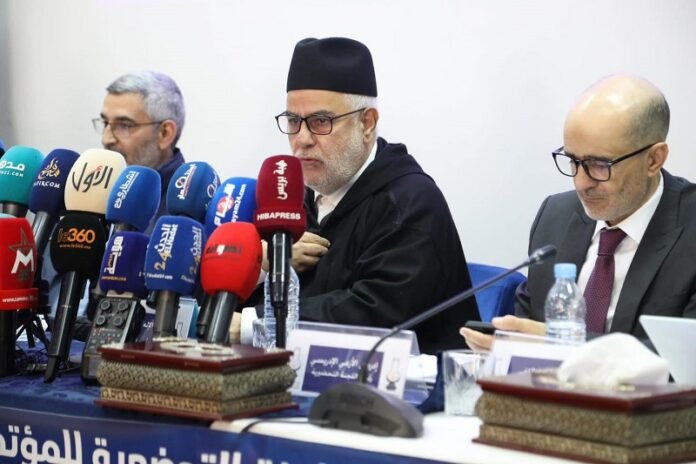In a new appearance—shocking, bold, and at times provocative—Abdelilah Benkirane, Secretary General of the Justice and Development Party (PJD), returns to the forefront of Morocco’s political scene. This time not only as the leader of an opposition party but as an “insider witness” firing strong accusations at everything: the government, territorial administration, electoral mechanisms, and even the credibility of the democratic process itself.
Authority Agents Begging Citizens: “Please don’t vote for the PJD”!?
The accusation is shocking, unprecedented, and potentially consequential. When a former head of government claims that local authority agents were begging citizens not to vote for the PJD, this is no longer a mere political comment, but a direct denunciation of manipulation of the popular will.
But the real question is: Is Benkirane describing an objective reality? Or is this yet another narrative of political victimhood that his party adopts every time it suffers electoral losses?
And more importantly, where does the Ministry of Interior stand in relation to these accusations? Will a public investigation be opened? Or will silence, once again, be the default political response?
“World Cup Government” or the King’s Government? Who really governs 2030?
Perhaps the most striking statement by Benkirane was when he said: “The government that will manage 2030 is that of His Majesty the King,” asserting that it has nothing to do with Aziz Akhannouch or his cabinet.
A statement that highlights what some analysts describe as the return of a vertical governance system, where the government is reduced to an administrative executor of projects decided within the royal circles.
But then, a pressing question arises:
If the 2030 government is merely an executor, what is the point of elections?
Are we witnessing a true democratic process, or merely a controlled performance?
The Past Never Dies: Benkirane evokes Basri… in “soft” form
In a rare moment of bitter clarity, Benkirane stated: “We don’t want to return to the days of Driss Basri, but some signs are reappearing.”
An implicit admission that political control never disappeared—it merely changed form and tools.
Are we now living in an era of “soft authoritarianism”, where decisions are made behind the scenes, far from public scrutiny?
And do political actors, including Benkirane himself, truly have the courage to confront this system head-on? Or are they merely playing rehearsed roles in a script already written?
“Whoever enters politics with money is either a trader or a thief”
Perhaps Benkirane’s most stinging statement was:
“He who enters politics with money can only be a trader or a thief.”
A barely veiled attack against his political rival Aziz Akhannouch—unnamed, but unmistakable.
So, has political money become the true player in Moroccan public life? Have elections turned into a marketplace where votes are bought and principles are sold?
Where are the oversight institutions? Who ensures transparency? Who questions? Who holds accountable?
Protest Speech… or Political Comeback Strategy?
This may be the heart of the matter.
Is Benkirane genuinely sounding an alarm to save what remains of the democratic process?
Or is it a calculated speech, aimed at rallying his base and preparing the ground for a political comeback?
And above all, why does this same narrative resurface after every electoral setback?
How long will institutions remain deaf to such warnings?
And if nothing changes… is it still meaningful to speak of democratic alternation?


